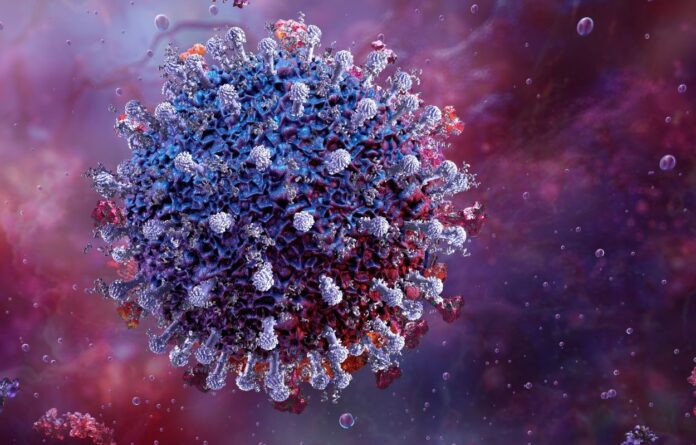Overview
On January 24, 2025 the Trump Administration formally announced withdrawal of two proposed FDA rules expected to take affect in the Spring of 2024 that were aimed at reducing tobacco-related health disparities. As the largest corporate donor to a pro-Trump super PAC during the election cycle, many question the influence of the R.J. Reynolds Tobacco Company in this decision.
Menthol and Characterizing Flavors Rules
On April 28th, 2022, the Food and Drug Administration (FDA) announced two proposed rules aimed at reducing tobacco-related health disparities. The proposed rules included (1) a product standard that prohibits menthol as a characterizing flavor in cigarettes and (2) a product standard that prohibits all characterizing flavors, including menthol, in cigars, permitting only the sale of tobacco-flavored cigars or premium cigars. These rules would not have applied to electronic smoking devices (ESDs)/vape products or smokeless tobacco.
The tobacco industry has historically targeted youth, the LGBTQ+ community, and African Americans with tailored marketing campaigns for menthol products. As a result of decades-old marketing tactics, tobacco use is the number one cause of preventable death among African Americans, claiming at least 45,000 African American lives every year. The proposed rules to help reduce these harms simply needed sign-off from the White House’s Office of Management and Budget (OMB) to become effective, which the FDA and public health advocates expected to happen in Spring 2024. President Biden left office without that happening.
Proposed Nicotine Yield Reduction Rule
In the final days of the Biden administration, the FDA submitted to OMB a proposed rule that would require tobacco companies to reduce the amount of nicotine in combusted cigarettes, cigarette tobacco, roll-your-own tobacco, cigars (excluding premium cigars), and pipe tobacco. Because nicotine is the addictive chemical in these products, the proposed rule would create minimally addictive or nonaddictive products, leading to a decrease in product use. Interestingly, a large body of research shows that reduced nicotine content does not lead smokers to compensate by smoking more cigarettes. Members of the public have until September 15, 2025, to provide comments on the rule.
The nicotine yield reduction rule is not a new idea. In 2018, Scott Gottlieb, President Trump’s first FDA Commissioner, announced his intention to propose a nicotine yield reduction rule, acknowledging this as an opportunity to decrease the burden of tobacco-related disease. It is unclear whether President Trump still supports this initiative given Big Tobacco’s donations to the pro-Trump PAC and the connection of his Chief of Staff, Susie Wiles, to Swisher International as their former lobbyist.
FDA’s Authority to Regulate Vape Products
The Supreme Court in FDA v. Wages and White Lions Investments will decide whether the FDA violated the Administrative Procedures Act (APA) in prohibiting the sale of two flavored vape products. In September 2021, two flavored e-liquid manufacturers, Wages and White Lion and Vapetasia, submitted premarket tobacco product applications (PMTA) to the FDA requesting permission to sell these products commercially. This process is required for all vape products based on the FDA’s enforcement of the Family Smoking Prevention and Tobacco Control Act and the Agency’s deeming regulation pulling vapes into the FDA’s regulatory authority. The FDA denied the applications and issued marketing denial orders. As a result, the manufacturers were required to remove their products from the market.
The manufacturers challenged the FDA’s decision in the United States Court of Appeals for the Fifth Circuit arguing that the denial was “arbitrary and capricious” in violation of the APA. An agency’s decision is arbitrary and capricious when it is not based on sound reasoning; generally, this is a high standard that challengers struggle to meet. A three-judge panel of the Fifth Circuit decided 2-1 in favor of the FDA, but that Court granted a rehearing of the case in front of all 16 judges in the Circuit (called rehearing en banc). The full panel ruled 10-6 in favor of the vape manufacturers, finding that the FDA, without notice to manufacturers, changed the evidentiary standards for review of PMTAs and that the FDA ignored the vape manufacturers’ marketing plans that the FDA previously characterized as critical.
The Supreme Court granted the FDA’s request to review the case (writ of certiorari) and held oral argument on December 2, 2024. Nineteen states filed an amicus brief in support of the FDA. In the ordinary course, the Court would issue its opinion by July 2025. If the Court finds in favor of the vape manufacturers in this case, the decision will have the effect of upending the FDA’s PMTA decisions on thousands of PMTA applications for vape products. However, at any time before the Justices issue a decision, the Trump Administration may dismiss the case, leaving the Fifth Circuit decision in place. Such an action could create chaos as appellate courts across the country have split on this issue, making FDA compliance with all court orders nearly impossible.
President Trump has not commented on this case specifically, but he has vowed to save vaping after meeting with lobbyists in Fall 2024, posting on Truth Social: “I saved flavored vaping in 2019, and it greatly helped people get off smoking.” “I’ll save vaping again.” In his first term, President Trump promised to act to ban flavored vape products to protect children, but later backtracked, expressing the need for these products to help adults quit smoking. Consequently, the future of FDA regulation of vape products remains uncertain.
This post was written by Brooke Torton, Senior Attorney, Network for Public Health Law — Eastern Region.
The Network promotes public health and health equity through non-partisan educational resources and technical assistance. These materials provided are provided solely for educational purposes and do not constitute legal advice. The Network’s provision of these materials does not create an attorney-client relationship with you or any other person and is subject to the Network’s Disclaimer.
Support for the Network is provided by the Robert Wood Johnson Foundation (RWJF). The views expressed in this post do not represent the views of (and should not be attributed to) RWJF.



